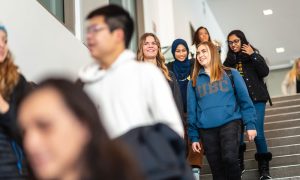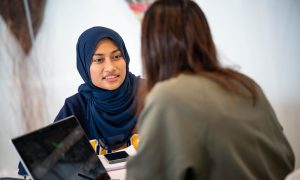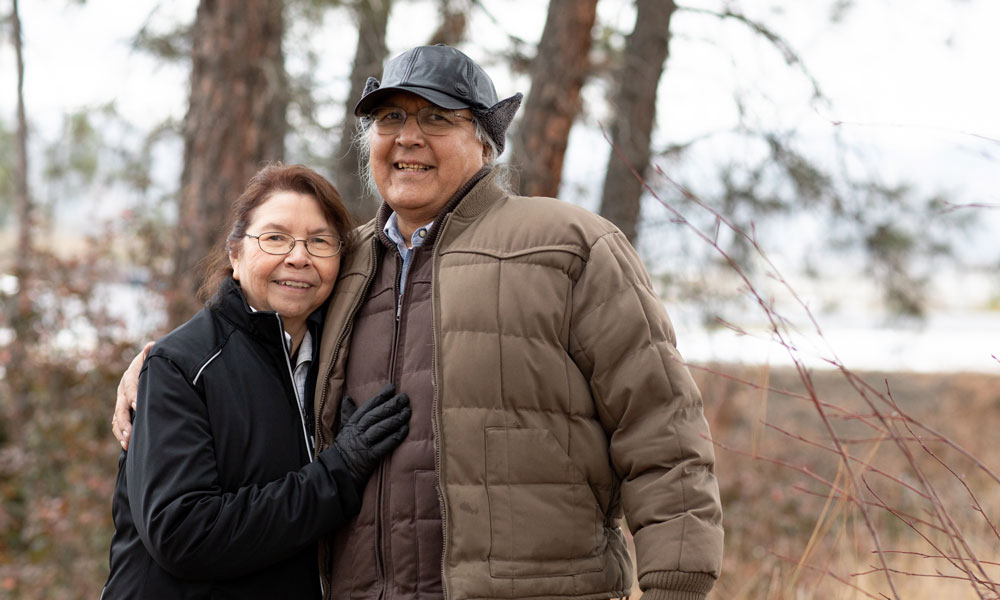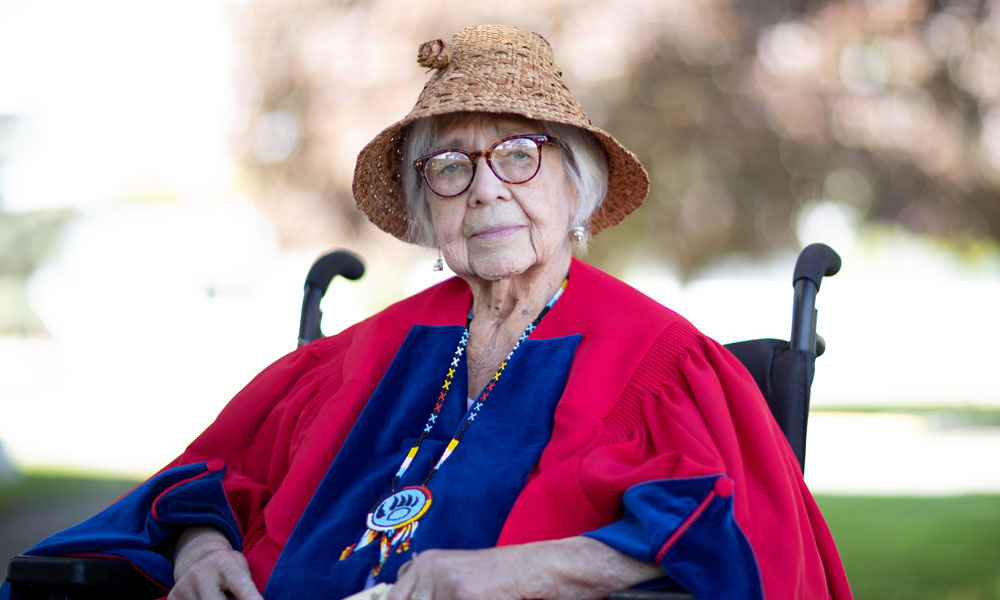COLLABORATIVE
Expressions of reconciliation
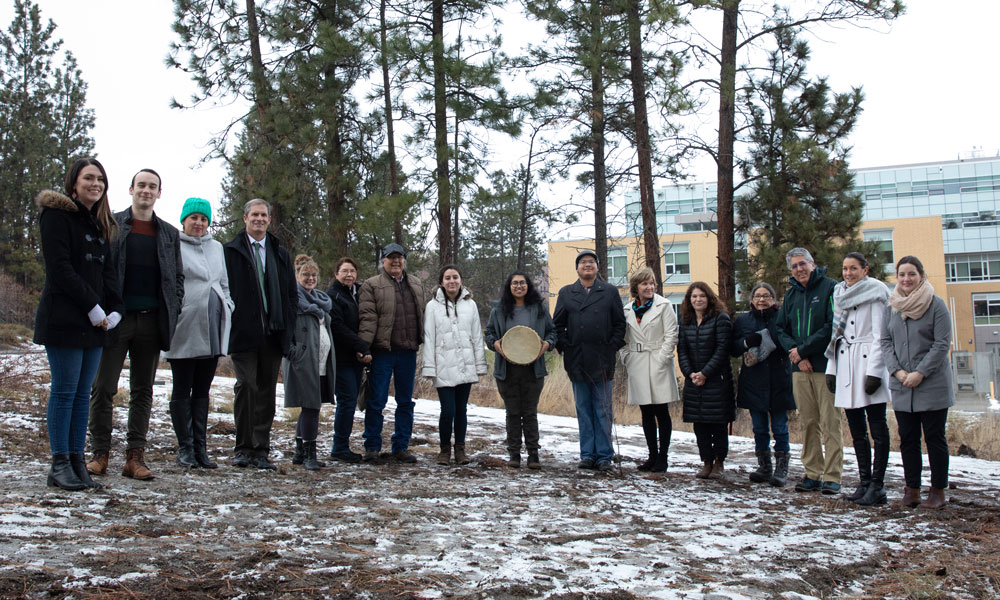
We respectfully acknowledge the Syilx Okanagan Nation and their peoples, in whose traditional, ancestral, unceded territory UBC Okanagan is situated.
Elders Chris Marchand and Eric Mitchell provided art direction for the group photo on this page, representing the cultural safety work underway at UBC Okanagan. From left to right: Kelly Fosbery, Ryan Conneely, Dominique Alexis, Bryce Traister, Allison Hargreaves, Chris Marchand, Eric Mitchell, Maria Alexis, Amber Cardenas, Keegan Wright, Donna Kurtz, Carlene Dingwall, Diana Moar, Dan Odenbach, Jeannine Kuemmerle and Rachel Andreychuk.
Indigenous citation: Oral tradition and storytelling protocol recognize where you have heard a story and from whom. We request for you to acknowledge this protocol should you wish to share information from these articles.
By Craig Carpenter
A multigenerational Canadian settler of Irish, British, French and Swiss descent, Craig Carpenter lives on the traditional, ancestral, unceded territory of the Syilx Okanagan Nation. A freelance print journalist and podcaster, he is a Master of Arts candidate in the Interdisciplinary Graduate Studies’ digital arts & humanities theme at UBC Okanagan.
AS PART OF UBC OKANAGAN’S COMMITMENT TO TAKE ACTION in response to the Truth and Reconciliation Commission’s 2015 report, an Indigenous cultural safety program will eventually be delivered for all faculty and staff. However, since 2008 such a program has already been offered to all third-year Bachelor of Nursing students as a means of ensuring that Indigenous ways of knowing and voice are recognized and respected in the health-care system.
Along with several faculty members, Expressions of Reconciliation author Craig Carpenter experienced this cultural safety training with Syilx Elders and adjunct professors Christina (Chris) Marchand and Eric Mitchell. Designed to help faculty and staff become better allies in the healing journey of reconciliation, the workshop consisted of four days of Indigenous education and self-reflection. While it included information on the history of Indigenous people from contact through to the current day, the workshop was designed to foster a deeper understanding of the reconciliation work required within ourselves. Participants were challenged to confront their own biases and better comprehend the importance of questioning their own perspectives in the process of reconciliation.
Below, readers can learn about the background of the cultural safety training in the School of Nursing as well as Carpenter’s eye-opening experiences during the impactful workshop.
